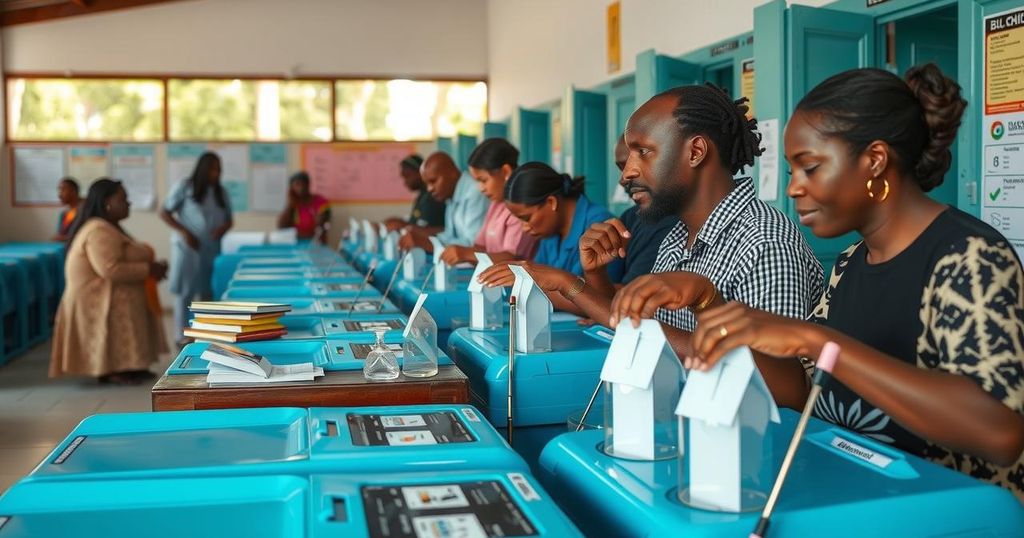Comoros Voters Elect Parliament Amid Controversies and Opposition Tensions
On Sunday, voters in the Comoros are electing a 33-seat parliament amid allegations of past electoral irregularities under President Assoumani. Approximately 338,000 voters are participating, while nearly 100 candidates, selected by the Supreme Court, seek election. Some opposition parties advocate for a boycott, though prominent voices argue for participation to expose government flaws. Results are anticipated by January 17.
Voters in the Comoros began casting their ballots on Sunday to elect representatives for the nation’s 33-seat parliament. This election follows the controversial reelection of President Azali Assoumani, which was marred by accusations of significant irregularities. Despite these claims, officials from the ruling party have firmly denied any wrongdoing.
Polling stations opened at 8 a.m. local time, with approximately 338,000 eligible voters taking part. The country’s last parliamentary elections occurred in January 2020, and this time, nearly 100 candidates have been approved by the Supreme Court to vie for seats in the parliament.
Opponents of President Assoumani accuse him of authoritarian tendencies and suggest that he is preparing his eldest son, Nour El-Fath, for succession when his term concludes in 2029. Assoumani, who has led the Comoros since seizing power through a coup in 1999, has since secured three electoral victories. Recently, he granted his son extensive authority over government operations, which has raised further concerns.
Some opposition factions, including the Juwa party presided over by former President Ahmed Abdallah Sambi—currently serving a life sentence—have called for a boycott of the elections. However, others within the opposition have rejected this approach. Hamidou Karihila, a candidate from the opposition Hope of the Comoros party, expressed, “The Azali regime is weakened … by participating in these elections we are contributing to further exposing the flaws in its system and accelerating its inevitable fall.”
Polls are set to close at 4 p.m., with preliminary results anticipated by January 17.
The current political climate in the Comoros is characterized by allegations of electoral malpractice, particularly surrounding the recent reelection of President Azali Assoumani. His administration has faced scrutiny from opposition factions who voice concerns regarding authoritarian practices and the potential political grooming of his son for future leadership. The parliamentary elections scheduled reflect continuing tensions in the political landscape and the varying strategies among opposition groups regarding engagement in the electoral process.
In conclusion, the parliamentary elections in the Comoros underscore a fraught political atmosphere marked by allegations of irregularities and authoritarian governance under President Assoumani. As the nation prepares to elect its representatives amidst calls for boycotts and significant opposition activity, the results of this election will be critical in shaping the future political landscape. The outcome may either cement the ruling regime’s hold or present new opportunities for opposition parties to assert their influence.
Original Source: www.voanews.com




Post Comment